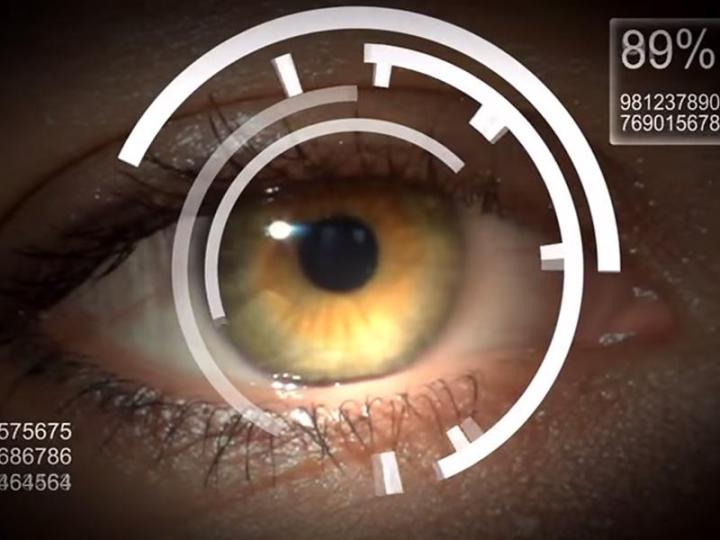
The Arrows, which DoCoMo says is the world’s first to offer iris recognition for phone unlocking, mobile wallet payments, and Web logins, uses an integrated Delta ID ActiveIRIS module for scanning. The component consists of an LED light and infrared camera that reads the pattern of your iris to retrieve the “password,” so to speak — you create “templates” of both eye by taking a photo, and the modules match your eyes from up to 50 centimeters away.
It’s tech we got to demo at Mobile World Congress (MWC) in Barcelona, Spain earlier this year with a prototype from Fujitsu. ActiveIRIS worked quite well, managing to scan the irises of three people — some with glasses, some without — in less than a second (and sometimes in as few as 150 milliseconds, we were told). That kind of speed is essential for mobile payments and the like. Three years ago, management of London’s Tube deemed NFC technology too slow to meet the transportation system’s demands.
As far as the rest of the Arrows’ specifications are concerned, they’re a tad lacking. The display is a bit smaller than we’re used to seeing at 5.2 inches, but it’s relatively low in resolution with a QHD, or 960 x 540 pixel count. It’s rounded out by a 2GHz processor, 3GB of RAM, and 32GB of non-removable storage.
Fujitsu isn’t the only company exploring new methods of biometric identification on smartphones. Mobile device maker ZTE announced at MWC that its upcoming Grand S3 will use EyeVerify, a security software that reads the veins of a person’s eye. Qualcomm’s Sense ID uses ultrasound to see identify the ridges and sweat pores of fingerprints and check blood flow. And Hoyos Labs uses high-resolution facial recognition to secure password-protected sites and app credentials.
There’s great potential for the aforementioned technologies beyond mobile payments and phone unlocking, of course. Fujitsu plans to make ActiveIRIS an enterprise security solution, and Delta ID believes its tech could one day be used to secure bank accounts. Also, don’t be surprised if your next computer packs iris-scanning tech — Windows 10 ships with a feature called Hello, an authentication platform for biometric sensor companies.
Very soon, it seems, your eyes could very literally become the keys to your digital identity — Best you don’t lose them.

